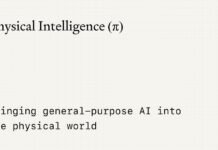Title: The Role of Artificial Intelligence in Revolutionizing Healthcare
Introduction:
In recent years, the integration of artificial intelligence (AI) in the healthcare industry has sparked a revolution that holds immense potential to transform the future of medical care. AI, with its ability to process large amounts of data and identify complex patterns, offers unprecedented opportunities for diagnosing diseases, developing personalized treatments, and improving overall patient care. In this article, we will explore the remarkable advancements AI brings to healthcare and discuss the ethical considerations it raises.
Heading 1: Enhancing Diagnostic Accuracy with AI
Subheading 1.1: AI-powered Imaging and Radiology
AI algorithms trained on massive datasets have shown remarkable accuracy in interpreting medical images such as X-rays, MRIs, and CT scans. Deep learning algorithms have the capability to detect and flag anomalies, potentially assisting healthcare professionals in making quicker and more accurate diagnoses. This technology is particularly promising in detecting early signs of diseases like cancer, where early intervention significantly improves patient outcomes.
Subheading 1.2: AI-driven Diagnostic Decision Support Systems
By analyzing an extensive range of medical records, symptoms, and test results, AI-based decision support systems provide healthcare professionals with insightful recommendations for patient diagnosis and treatment. These systems act as valuable aids, augmenting clinical expertise and reducing the chances of misdiagnosis or delayed treatment.
Heading 2: Personalized Treatment Plans and Precision Medicine
Subheading 2.1: Genomics and AI Integration
Advancements in genomic sequencing, coupled with AI-based analysis, have opened new avenues for precision medicine. AI algorithms are capable of mining vast genomic databases and identifying genetic traits associated with certain diseases. This invaluable information assists clinicians in creating tailored treatment plans based on an individual’s unique genetic makeup.
Subheading 2.2: Natural Language Processing for Personalized Medicine
AI-powered natural language processing techniques effectively retrieve and analyze relevant information from medical literature, electronic health records, and research databases. By understanding contextual nuances, AI helps healthcare professionals make informed decisions in developing personalized treatment plans suitable for specific patients.
Heading 3: Virtual Assistants and Chatbots Revolutionizing Patient Care
Subheading 3.1: AI-Driven Virtual Health Assistants
Virtual health assistants, powered by AI, provide patients with personalized advice, symptom tracking, and medication reminders. These assistants are available round the clock and enable patients to monitor their health, leading to better self-care and improved compliance with medical recommendations.
Subheading 3.2: Chatbots for Integrated Care
AI-driven chatbots empower patients with instant access to medical information and triage services. With their ability to triage symptoms and provide appropriate advice, chatbots reduce the workload on healthcare professionals and enable quick access to care, especially in remote areas where medical resources are scarce.
Heading 4: Ethical Considerations and Challenges
Subheading 4.1: Privacy and Data Security
The integration of AI in healthcare necessitates careful considerations pertaining to patient privacy and data security. Maintaining strict data protection measures and ensuring anonymization are vital to prevent misuse or unauthorized access to sensitive health information.
Subheading 4.2: Bias and Transparency
AI algorithms must be developed and monitored to combat any potential bias that might arise from skewed datasets. Increased transparency with regards to the functioning of AI systems is crucial to foster trust between patients, healthcare providers, and AI technologies.
Conclusion:
Artificial intelligence holds transformative potential in revolutionizing the healthcare industry. From enhancing diagnostic accuracy to enabling personalized treatments, AI-driven technologies are reshaping patient care. However, it is essential to address ethical concerns and ensure proper regulation to maximize the benefits of AI while safeguarding patient privacy and maintaining transparent systems.
FAQs:
1. How does AI ensure patient data privacy and security?
AI systems in healthcare employ strong data protection measures, including encryption, access control, and anonymization techniques, to ensure patient data privacy and security.
2. Can AI algorithms be biased in diagnosing diseases?
While AI algorithms hold incredible accuracy, there is a risk of bias if the training datasets are imbalanced or biased. Extensive monitoring and diversity in training datasets help mitigate this concern.
3. Will AI replace healthcare professionals?
AI augments the capabilities of healthcare professionals rather than replacing them. It acts as a powerful tool, assisting in decision-making, streamlining administrative tasks, and improving patient care.
4. Can AI revolutionize mental healthcare?
Yes, AI has the potential to revolutionize mental healthcare by offering personalized treatment options, virtual therapy sessions, and early detection of mental health conditions.
5. What challenges does AI face in the healthcare industry?
Some challenges include ethical considerations regarding patient privacy, ensuring transparent and unbiased algorithms, and integrating AI seamlessly into existing healthcare systems while ensuring regulatory compliance.







